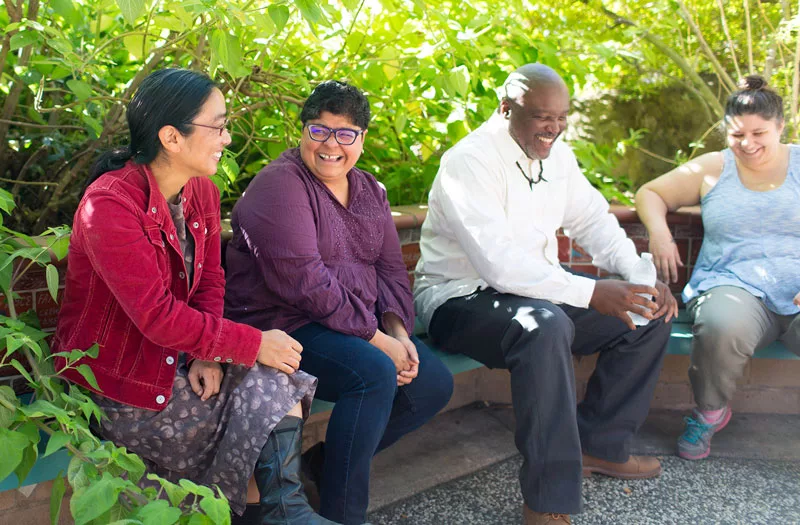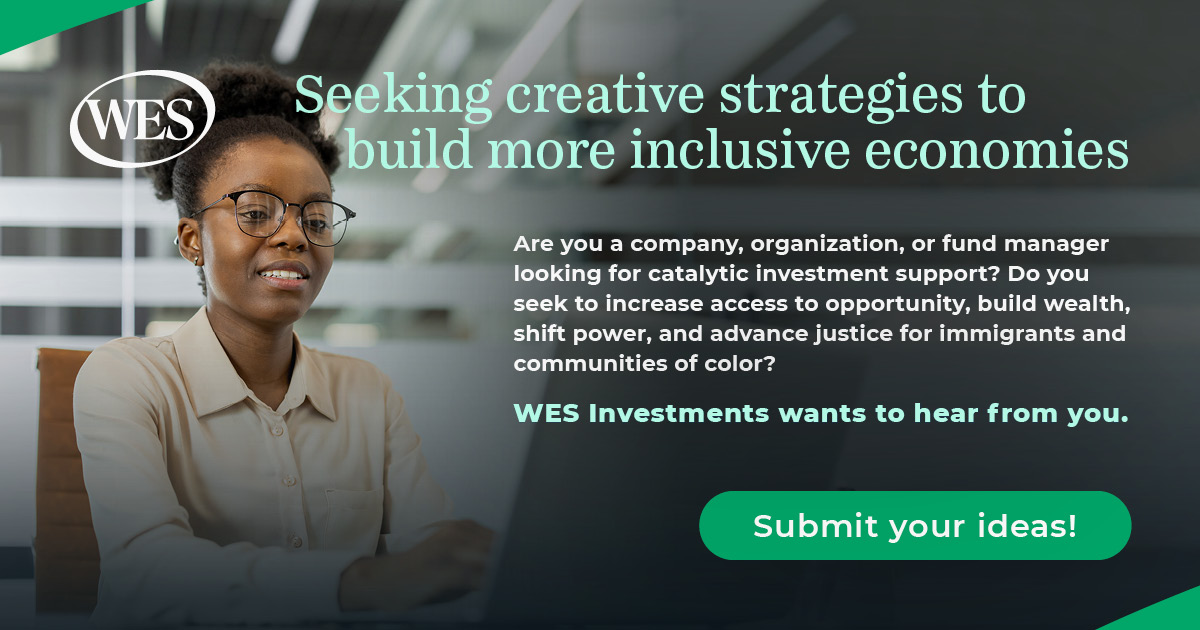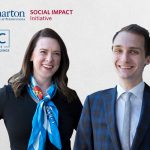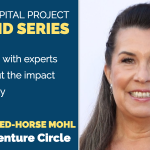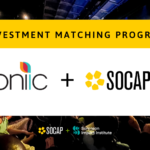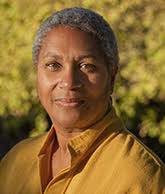
With over 6,000 alumni, Rockwood Leadership Institute is the United State’s largest provider of multi-day, transformative leadership trainings for social change, nonprofit, and philanthropic communities. Rockwood President Akaya Windwood has been described as a “a one woman social change movement.” She has been credited with elevating the effectiveness of leadership and collaboration in the nonprofit and social change sectors globally. We recently sat down with Windwood for a conversation about leadership, mentorship, and the future of the global social impact movement.
SOCAP: What are the skills that today’s social leaders need to develop to help us build a fair and equitable society? What can they learn from past social change movements?
Akaya Windwood: I think we need more heart and less brain, frankly. We humans are very clever, and that is both a gift and a challenge.
We are in a time and culture where our minds are over-emphasized and our hearts are de-emphasized, placing more importance on how intelligent we think somebody may be. What’s considered “smart” is based on a particular point of view or set of assumptions about what intelligence is. There are different kinds of intelligence. We need more of what I call “intelligence of the heart”.
We need more leaders who have a deep capacity for empathy and connection, who can recognize that the world doesn’t revolve around them or even the issues they care about, and who see their movements, organizations, and efforts as part of a whole ecosystem.
Nobody can do anything entirely by themselves. It takes all of us. It takes a community. The idea that all one has to do to succeed is work hard is a myth. It’s not true.
SOCAP: What are the best ways social change leaders can form coalitions or build the relationships that will help them become stronger and more effective?
AW: Coalitions come together generally to do one thing, and then they all go back to whatever they were doing before. I’m much more interested in building authentic relationships that last over time, between organizations and sectors, and across movements. This requires understanding that we are all woven into the same tapestry, and we are part of a web of relationships that are not necessarily strategic. They can be, but when we build our relationships based solely on strategies and campaigns, they’re not going to work over time.
We’re in the business of social transformation, and social transformation happens over the long haul. It can appear as if change happens “in the moment,” but there’s usually years of planning behind it. When marriage equality happened in the United States, it wasn’t that people suddenly changed their minds; it had been years of dreaming and figuring out and building relationships that allowed the nation to move.
If the relationships I form and foster today are authentic, it may be 20 years before something “happens,” but it isn’t about building relationships to get what I want. I think a lot of traditional business consists of that sort of quid pro quo. But that’s not the basis for a sustainable, fair, and just economic system.
SOCAP: Entrepreneurs often come to SOCAP to seek out and build connections with mentors. What would you suggest to the entrepreneurs for how they can approach that search and prepare themselves to be a good partner in that relationship as a mentee.
AW: This is a tricky question. Relationship is inherently reciprocal, but so often we view mentorship as only going one way, which doesn’t get us to where we want to go.
If, as a mentor, I view it as an obligation that’s only about the other person receiving support from me, I miss out on the opportunity of learning and growth for myself. And if the mentee doesn’t believe they have anything to offer me, they lose sight of their strengths and talents. It becomes an extractive relationship, where one person gets something and the other gets depleted. That’s not sustainable.
I mentor a number of folks because I love and care about them, who they are as human beings, and what they want to bring into the world. They’re all younger than I am, and they are going to make this world amazing in ways that I can’t imagine. And yet, they are my partners in making transformation happen. When I view it that way, it becomes a delight to mentor them. They feed me in many ways. I’m happy to help people figure things out, and in that, I get fed. They give me as much as I can offer them in a different way. These are reciprocal relationships.
I always get a little bit uncomfortable when someone says, “I need a mentor. Who’s out there?” I want to ask, “Well, what are you bringing to that?”
This is where race, class, and gender can come into play. When you look at who generally assumes they will be mentored, assumes they deserve to be mentored, they don’t generally look like me. I have made it a point to mentor young women of color, who are often surprised that somebody would see them and say, “Let me help you.” Women, people of color, and people raised poor or working class often don’t believe they deserve mentorship, or don’t know to ask for it.
People who have benefited from this huge system of inequality – mostly wealthy or economically privileged white men – assume that mentorship is part of the deal. That’s not to say that those who fit within that group are bad people, but rather that there’s a system that determines some people are worthy of mentorship, and other people are not. I’m thinking about the other people.
SOCAP: What’s your hope for the future of the global social impact movement?
AW: Looking at this nascent field, I love that it has the capacity to cover a lot of territory. It’s an idea that is not bound by sector, and can have impact across many of them: nonprofit, for-profit, government, philanthropic. In some ways, it is knitting together sectors that have been delineated unnecessarily, and to our detriment.
So I think that, as we clarify what “social impact” means, it will start to include things we can’t even imagine yet.
A trend I’m beginning to see is a shift from accumulation to distribution, as in the movement of resources. People are realizing that having five billion dollars in their pocket is meaningless. You can’t carry around that money. No human being can spend five billion dollars in a lifetime. So it’s just sitting there, being meaningless.
This is what I’m looking to young people for. Folks that are in their 20’s, 30’s, and 40’s are more and more clear that it doesn’t serve the world for anybody to live in poverty. We also don’t need billions of bucks sitting around, stagnant and contributing to a world that is increasingly less viable. I’m deeply hopeful that these young people will be the architects of big systems, and builders of what’s coming next.
SOCAP: This year you will serve as a core faculty member for the first cohort of the RSF Integrative Capital Fellowship. Can you talk about the role that you’re going to play and what you’re hoping will grow out of it?
AW: My background isn’t in finance. My body of wisdom lies in leadership, particularly transformational leadership. What does it take to live and lead from a place of purpose? I believe that each of us is here for a purpose, and leadership is about manifesting that through our work.
That’s what I will be bringing to the Integrated Capital Fellowship. Both to help the fellows be inspired, bold, and courageous, and to help them connect with each other as we think about shifting from accumulation to movement and generosity. I’m especially interested in folks who have the capacity to move large sums of money, because that’s often where it’s stuck.
SOCAP: You participated in a recent SOCAP365 event about Capital Shifts for a Regenerative Economy. Was there something that came out of that conversation that you found particularly interesting?
AW: At one point, I talked about the fact that every time we spend a dime, we’re making an investment and a statement of what we value. That got retweeted, more than I could have anticipated. I wondered why it was so important. Then I realized, for so many, finance and investment are things only “those people” do, people like Warren Buffett. Many of us don’t know that we invest every time we choose where to spend our dollars. It’s not how we think about how we use resources.
I began to see that reshaping the notion of investing to include all of us making investment choices every day will shift how we see ourselves in relation to money. That can happen whether you broker millions in stocks, or use food stamps. I’m imagining a person taking their EBT card and deciding to use it at a specific store because it’s more in alignment with their values. That makes them an investor.
If we all see ourselves as owners of our financial systems — and not passive, powerless people who are acted upon – can you imagine what might be possible?
